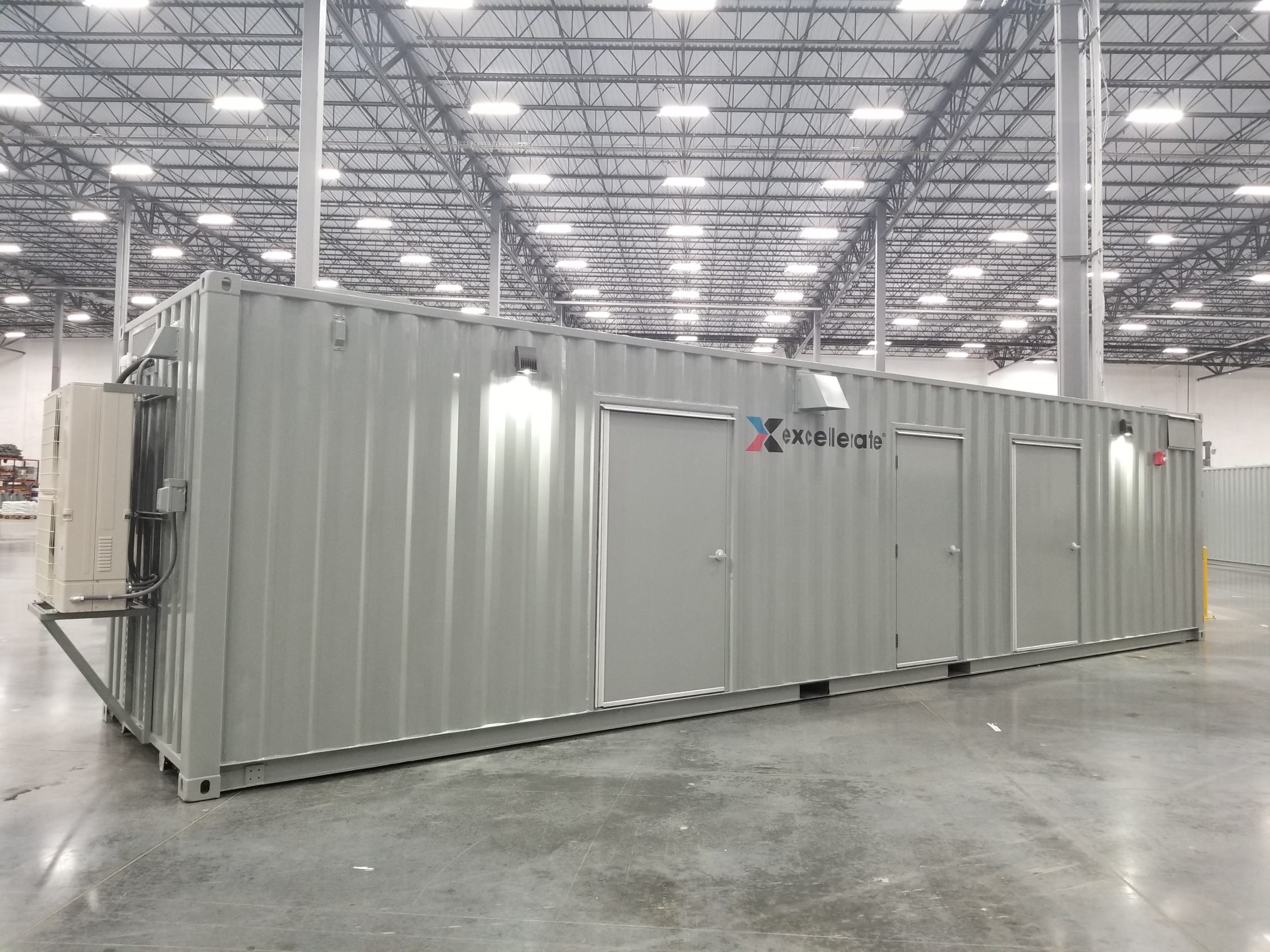05.27.2020
Power Resiliency in Healthcare
 Emergency Deployable Medical Unit (EDMU) by Excellerate Manufacturing
Emergency Deployable Medical Unit (EDMU) by Excellerate Manufacturing
The need for resilient power in the healthcare industry has never been disputed, but it certainly has been an area of increased focus brought on by the COVID-19 pandemic. Many organizations, including Faith Technologies, have been stepping up to support the additional needs of healthcare facilities across the nation and across the world. These include capacity and personnel constraints, but healthcare facilities also face a lack of remote energy monitoring and predictive capabilities related to their electrical infrastructure.
Healthcare complexes often consist of numerous buildings around a main campus or potentially numerous satellite locations and offices. As the size of facility teams are decreasing and demands are ever increasing, it is important that they have systems that are secure, connected at all levels, provide visualization along with event notification and offer remote-control capability. Additionally, to increase resiliency, healthcare facilities need better predictability, to understand where potential issues exist in their power distribution system before they even happen.
To help support the healthcare industry’s heightened needs surrounding COVID-19, Faith Technologies has partnered on two core solutions with different use cases:
- STAAT Mod™ is a modular ICU facility developed by The Boldt Company and HGA, which can function as a stand-alone hospital. Faith Technologies integrated power resiliency supported by Square D gear, backup generator and ASCO automatic transfer switches. Additionally, these facilities have full energy metering utilizing Schneider Electric Power Monitoring Expert and EcoStruxure™ Building Operation for energy visualization and control. These tools allow for remote support, highlight power quality issues and provide predictive insights.
- Emergency Deployable Medical Units™ (EDMUs), designed by Excellerate Manufacturing, are containerized solutions for temporary or mobile use such as patient testing, patient care, triage or ancillary space. Faith integrated secure power supplied by Square D gear, which is also configurable for use with backup generators. As these units are mobile, the ability to use energy metering, along with Schneider’s Power Monitoring Expert and System Health, can provide dashboard power status updates for individual or fleets of these units wherever they are deployed, increasing overall resiliency.
A key factor for resilient power design and implementation is proper planning and involvement of all stakeholders to ensure a firm understanding of the customer’s needs, requirements and use cases. At Faith Technologies, this includes educating customers on solutions that drive more robust designs, create safer environments and increase productivity and efficiency. We also partner with power equipment manufacturers who provide superior products, are responsive and have extensive distribution networks.
Faith’s overall value proposition also includes our ability to design, engineer and pre-fabricate/manufacture through our affiliation with Excellerate, enabling us to support the entire life cycle of an asset and become a one-stop shop for our customers.
Another critical piece in designing and implementing secure and resilient power is ensuring the supply chain can support the design, especially in our current environment. It is imperative to choose designs that use common components that are readily available and to also work closely with your equipment manufacturer on forecasting upcoming needs.
By following these processes, Faith Technologies has been able to very quickly design and develop resilient power solutions for the immediate and ongoing needs of healthcare facilities.
If you enjoyed this blog article, please subscribe to stay up to date on the latest industry news from our experts at Faith Technologies.



